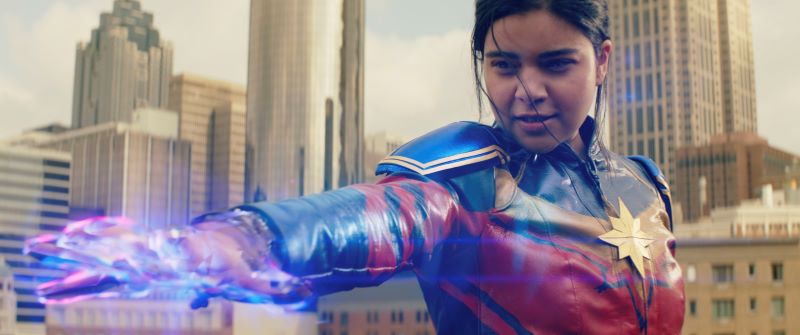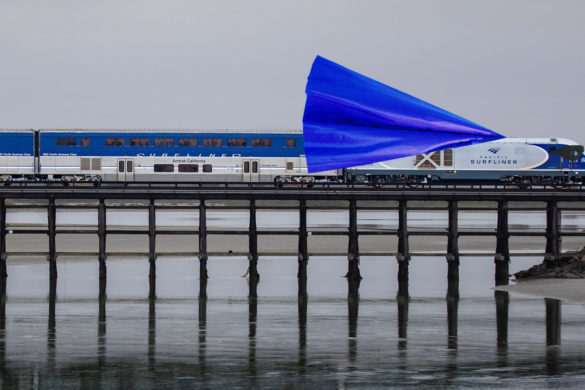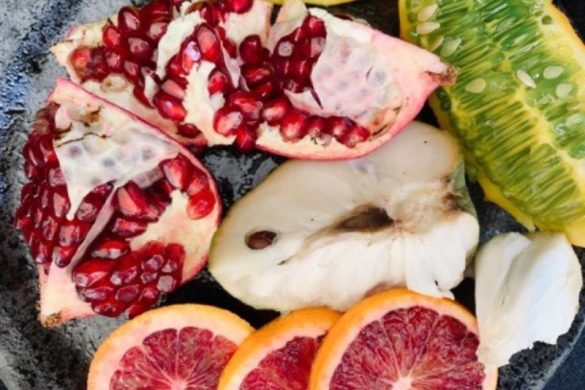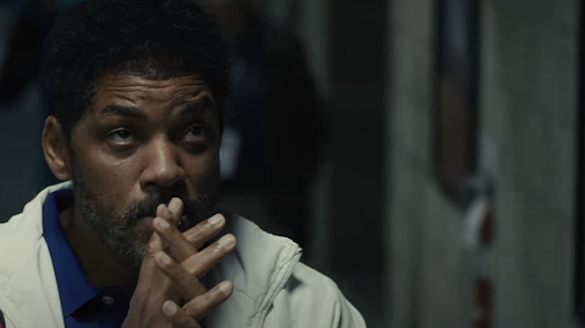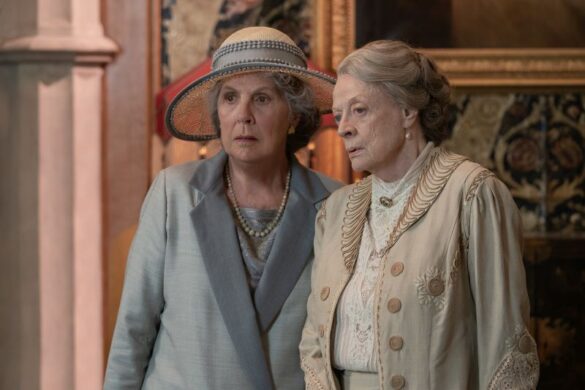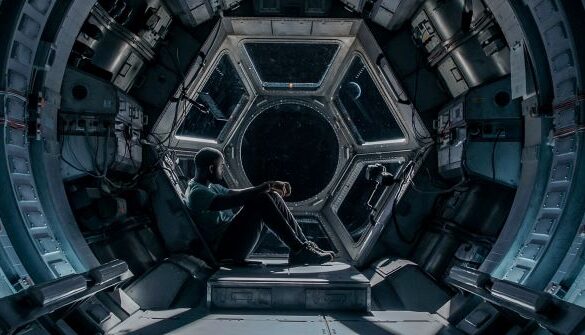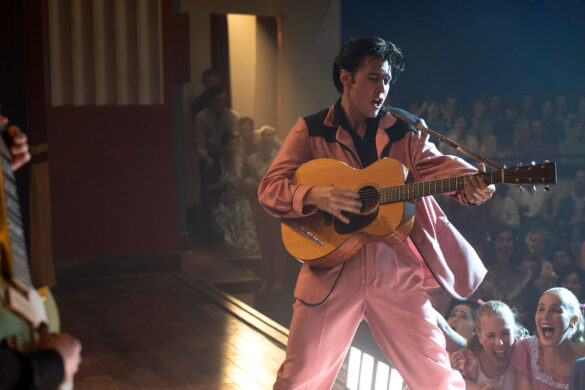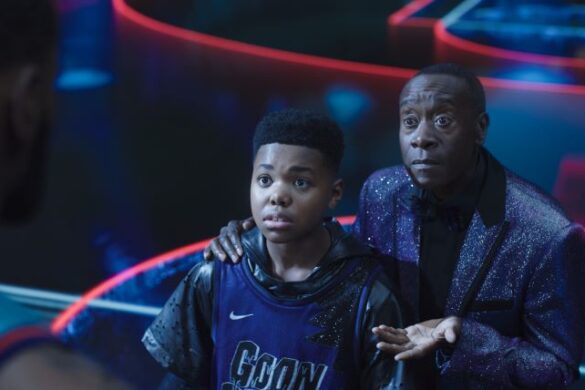“Ms. Marvel” represents a welcomed change for the Marvel Cinematic Universe. Though the past decade or so of exciting interconnective superhero stories redefined the genre, the beating heart of these films tells tales of the underdog overcoming significant obstacles that would eventually turn them into legends. But these heroes also serve as the inspiration for change. And for “Ms. Marvel,” it is the kind of change that the world has been waiting for as the series gives Muslim, Pakistani, and South Asian communities to tell their stories about home life and religious duties authentically within the MCU.
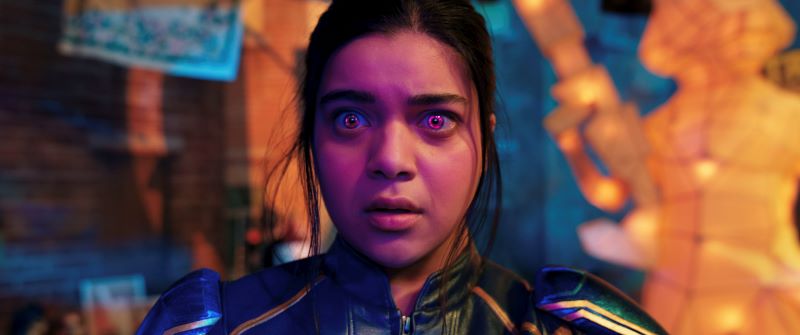
ThatsItLA had a chance to preview the first two episodes of “Ms. Marvel.” Set after the events of “Avengers: Endgame,” the coming-of-age series follows Kamala Khan (Iman Vellani), an awkward, dorky, creative, and intelligent Pakistani American Muslim teenager living in New Jersey. Of course, she has all the same experiences any teenager who has their head in the clouds has. She has to deal with insecurities, passing her driver’s test, preparing for her future, crushes, parties, playing Smash Bros, and sneaking out to go without her parents noticing.
While Kamala’s resonating story tugs at our heartstrings, the series doesn’t forget about the cultural framework that shapes who she is. Though “Ms. Marvel” occurs within the MCU, the first episode focuses on Kamala finding her identity while juggling her responsibilities at home and school. And things only get more complicated when she comes into possession of a long-forgotten family bangle that she found in her grandmother’s box of things.
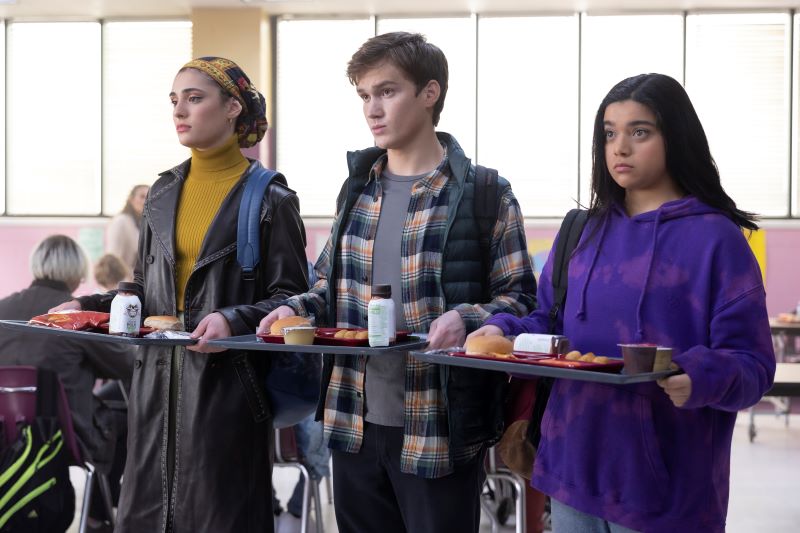
Adil El Arbi & Bilall Fallah’s pilot episode is a quick and fun exploration of Kamala’s character and the dynamics that she shares with her friends and family. Opening with the typical Marvel Studios intro card, Kamala excitedly narrates her low-budget ten-part 10-part series on Earth’s mightiest hero, Captain Marvel, with speed and spirit while foreshadowing her story without her knowing it. Then, the recap comes to life through her creativity of hand-drawn paper cutouts taped to pencils and cardboard ships hanging by strings. Played against The Weeknd’s “Blinding Lights,” Kamala narrates, “Finally, the moment everyone has been waiting for,” as if she knew the audience had been awaiting a chance to see a South Asian and Brown girl from Jersey superhero. You could tell how much pride she has in turning all of her homemade efforts into something that feels cinematic.
Episode one also introduces us to Kamala’s family. There’s Muneeba Khan (Zenobia Shroff), the overprotective mother. Then there’s Aamir Khan (Saagar Shaikh), the supportive older brother. And finally, there’s Yusuf Khan (Mohan Kapur), Kamala’s loving father. It’s a typically warm and caring family dynamic you’d expect from any family-friendly series like this, but just a little different thanks to how it weaves in those cultural and religious nuances organically.
And just as Kamala foreshadows in the opening minutes, Yusuf poetically foreshadows Kamala’s journey is a long and winding one, so she should never fully stop and stop signs. The truth is, the show moves at such a pace, one that is reflective of the fast-moving life of any teenager with her head in the clouds. Cameras zip, zoom, spin, and flip at a moment’s notice, all choices that reflect life coming at her fast and moving just as fast.
And school life isn’t any easier. Her school counselor tells her that she needs to focus. Teachers severely mispronounce her name. She can’t get through the gym without a ball hitting her face. The popular kids throw sneering looks. And others don’t respect her enough to move out of the way to get to her locker. Let’s face it. We’ve all been through that in high school.
Despite all those setbacks, there’s still an upside to all of it. Kamala also has the support of her friends, like the tech-savvy and pragmatic Bruno Carrelli (Matt Lintz) and the ambitious Nakia Bahadir (Yasmeen Fletcher). They make for a trio of friends who are their own crew that lives by a ride or die code and cannot stand the likes of the popular crowds.
While the stakes are relatively small by epic superhero standards, they are epic for any teenager trying to live a normal life. And for Kamala, she believes that she can be a teenager when she goes to AvengersCon to participate in the Captain Marvel cosplay competition. The costume is almost perfect, but Kamala must find the final flourish. But she won’t be able to do any of that without a car. To which Bruno suggests that Kamala simply ask her parents. But, of course, that’s not going to be easy.
But this isn’t just any ordinary coming-of-age series. Rather than follow Kamala’s journey by traditional standards, each episode uses an animated visual language that speaks to her personality, imagination, and culture. For example, in one of the one-shot sequences, street murals come to life as Bruno and Kamala bike around the city with their conversations playing out in the background like an idea coming to life. Text exchanges are more fun when street signs turn into shorthand and emojis are lit on convenient store lights. And drawn-up wild and crazy schemes pop with a sense of fantastical starry flair.
And the music is just as conscious of Kamala’s journey as the animated visual effects. The Linda Lindas’ “Oh” is a teenage anthem of the frustrations of suffering a setback, or Mase’s “Feel So Good” represents Kamala’s newfound confidence. While the Ronettes’ “Be My Baby” encapsulates the sensation of falling in love with a boy crush. The episodes also use South Asian music ranging from today’s artists like Swet Shop Boys and Riz Amhed to some of the classics like Nahida Akhtar.
Bisha K. Ali’s script is a humorous and heartfelt exploration of the community and how the tradition of settling down and having a family often clashes with the modernity of discovering one’s identity by traveling the world. And as Kamala and Muneeba try to navigate this delicate period in time, they will have to come to terms with the fact that there will always be that generational rift, but their love for each other will connect the two.
Ali’s script also addresses the body dysmorphia Kamala experiences in the comics. First, she pulls and tugs at her cosplay while looking at her reflection in the mirror and wonders if it will be enough to win. Then, while testing out some flourishes, she wraps a sarong around her waist so that she can bring a little bit of Pakistan to her suit. Ultimately, she chooses her grandmother’s bangle. But she will soon discover that it’s no ordinary accessory.
Eventually, Kamala sneaks out to AvengersCon, which looks like Marvel Studios’ answer to what would a Star Wars Celebration look like if it was Marvel-themed. When Kamala puts on the bangle for the first time, she is overcome with an odd sensation that she can only describe as cosmic. Not only that, but she can manifest her thoughts into hard light. But she and Bruno will soon learn that the road to being a superhero is a long and winding one.
In episode 2, we see a sudden shift in Kamala after she heroically saves the day. Finally, she has the confidence to walk down the halls without flinching. She also tells her teachers how to pronounce her name correctly. And she dares to say to her classmates to move away from her locker. Everything seems to be going well for her until she bumps into the dreamy Kamran (Rish Shah), a new student who transferred to her school.
Again, as much as the show is about Marvel superheroes, “Ms. Marvel” is really about telling Kamala’s story as a Pakistani-American teenager who is trying to balance out her life as a teenager with her Muslim faith and her superhero powers. Kamala learns that she will have to train if she wants to control her newfound powers. And as she and Bruno study the bangle, they discover that it has mysterious ancestral origins and some generational trauma that dates back to the Partition of India and Pakistan.
The MCU interconnective story is interesting, and the heartfelt coming-of-age story resonates, but the show stands out above the rest with its representation. It’s not so much that they throw in culture for its sake, but how the script organically weaves that into the story that the communities can immediately point out and connect with. The terms of endearment, slang, Halal Guys, pop culture references like hip-hop trio Swet Shop Boys, and films like Shah Rukh Khan’s “Baazigar” are named dropped. The episode doesn’t bother with explaining what any of that is, nor should it, as it reflects this community’s way of life. Plus, it would feel like pandering.
The religious dynamics also play a huge role as we see what it’s like being a Muslim woman in a mosque. While one group of teenagers are busy posting selfies, Kamala and Nakia are far more concerned about the condition of their section, which has faulty speakers, moldy carpets, and a crumbling wall. It’s far from the pristine conditions where the men pray.
The episode also reveals more of Nakia’s struggles living as a bi-racial Muslim who is tired of proving herself to others who see her as too white or too ethnic. Though her response is completely justified, considering it’s an unseen conflict, it’s a fleeting moment.
Though Kamala’s story in these episodes is straightforward, everything about the show, from Vellani’s bubbly and fantastical optimism to relatable experiences written into the script, instantly connects with the audience. The stakes may be low, but they couldn’t be any higher for the titular hero who crashes the family car during her first driver’s test, falls head over heels with someone they like, and more. And a lot of that plays out like a teenage fever dream. For instance, when she and Karman connect, her world is sprinkled with heart-shaped glitter. Even a drawing of herself and Karman in a romantic embrace captures what it’s like to have a crush.
Though “Ms. Marvel’s” coming-of-age superhero story isn’t wholly original, the small details help make the series stand out. El Arbi and Fallah take their visual style and transform it into a living piece of art, and Ali’s script makes us laugh and cry and provides some cultural insight. Above all, it’s a fun MCU series about an adorable dorky Avengers loving teenage girl who just so happens to be a Brown girl from Jersey. The change is here. And the change is her. Welcome to the MCU Ms. Marvel.
10/10

